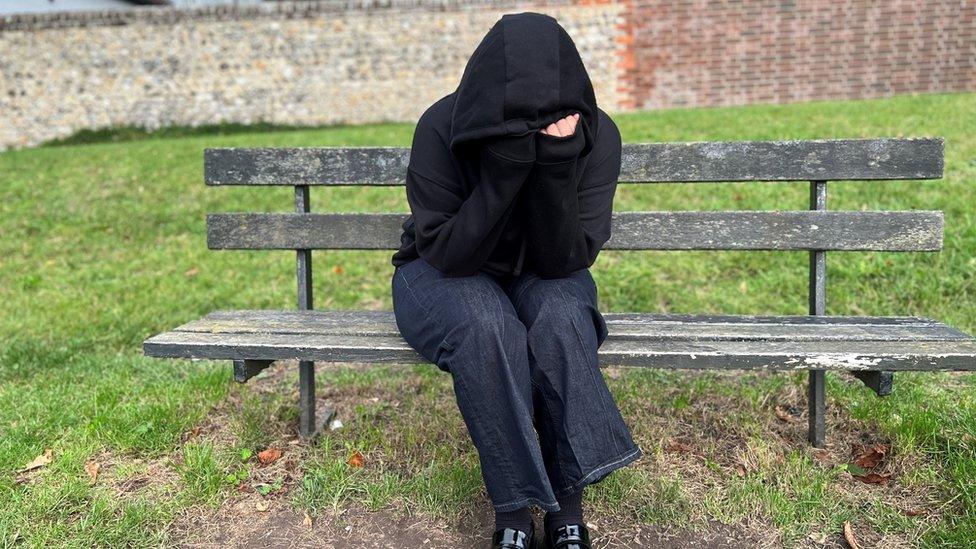Refugees staying indoors – afraid of being beaten
Listen to the stories of Swindon refugees Mohamed and Dashi, on BBC Sounds
- Published
As anti-immigration tensions rise across the country, refugees in Wiltshire say they are too afraid to leave their homes.
Mohamed arrived in the UK in 2021, having fled war-torn Sudan. He now has refugee status and works as an administrator – but said he and other refugees do not leave their Swindon homes once they return from work because they are "scared" of being "targeted" or "beaten".
Dashi, who arrived in the UK a child bride, 13, from Somalia, has called for more education to "bring communities together".
The leader of Swindon Borough Council, Jim Robbins, has said that he welcomes discussion on immigration but has discouraged people from protesting outside the town's one asylum hotel.
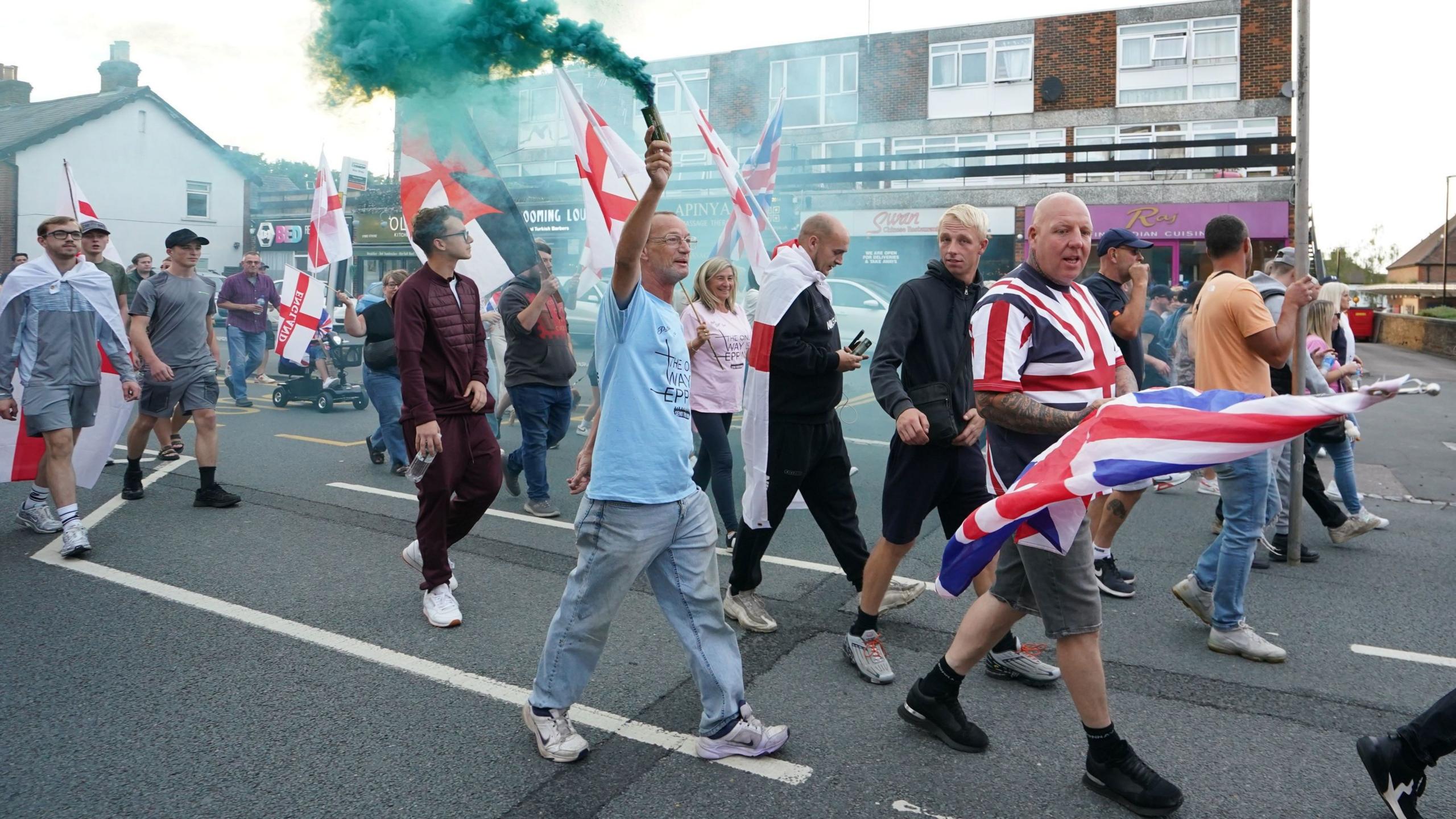
A recent anti-immigration protest outside The Bell Hotel in Epping, Essex
Anti-immigration protests outside hotels have spread across the country since a wave of demonstrations at The Bell Hotel in Epping, Essex.
Many people have joined counter-demonstrations.
Watching social unrest breakout across the country has unsettled Mohamed.
"Seeing people protest because of race, gender, nationality or political opinion, I feel like I'm not safe," he said.
"It reminds me of what happened to my own country."
Civil war has existed in Sudan for decades with the latest conflict starting in 2023.
Mohamed was 10 when he and his family fled their village in Darfur, the western region of Sudan, during an attack that resulted in the deaths of 21 people.
"We ran through the forest to save our life," he said. Mohamed then spent 18 years in a displacement camp before fleeing the country.
'Living in fear'
Mohamed said living in the camp was a "nightmare" because men were unable to leave for fear of execution.
He said he could no longer cope with "living in fear". Against his family's wishes, he left to find "a peaceful and safe place".
He travelled to Libya, to Italy and then to France before he and eight others made the dangerous journey by boat from Calais to Dover.
Mohamed said "it is risky" and he "feared for his life" but that he did not "feel safe" in any of the countries he passed through on his way to the UK and said support was insufficient.
Arriving in 2021, Mohamed said: "I felt safe and made a lot of friends, people were friendly."
But times have turned darker for some refugees. Fearing being "targeted" or "beaten", he said: "Nowadays I try to keep safe, I stay indoors after my work."
'Building a life'
Dashi's father was "murdered – shot and mutilated" in the family's pharmacy in Somalia.
She became a victim of female genital mutilation, and arrived in the UK as a child bride aged just 13 to be with her then-husband.
She said she faced "a lot of domestic violence" in her life here.
"I couldn't speak to the authorities, I didn't know the language back then, I didn't know the law and how it works," she said. "I was very isolated – it was just me and him."
Dashi eventually escaped the relationship and is grateful to the UK, which she said has "given me some sense of a future, some sense of building a life".
She said: "I have a daughter now and I want none of that to be in our lives any more."
Dashi said, if still living in Somalia, she would feel "some type of way" if there were lots of "foreigners coming in" but that education and awareness were key.
"Let's bring communities together, the British people and refugees," she said.
She hopes people will be able to understand each other and learn "how to work together".
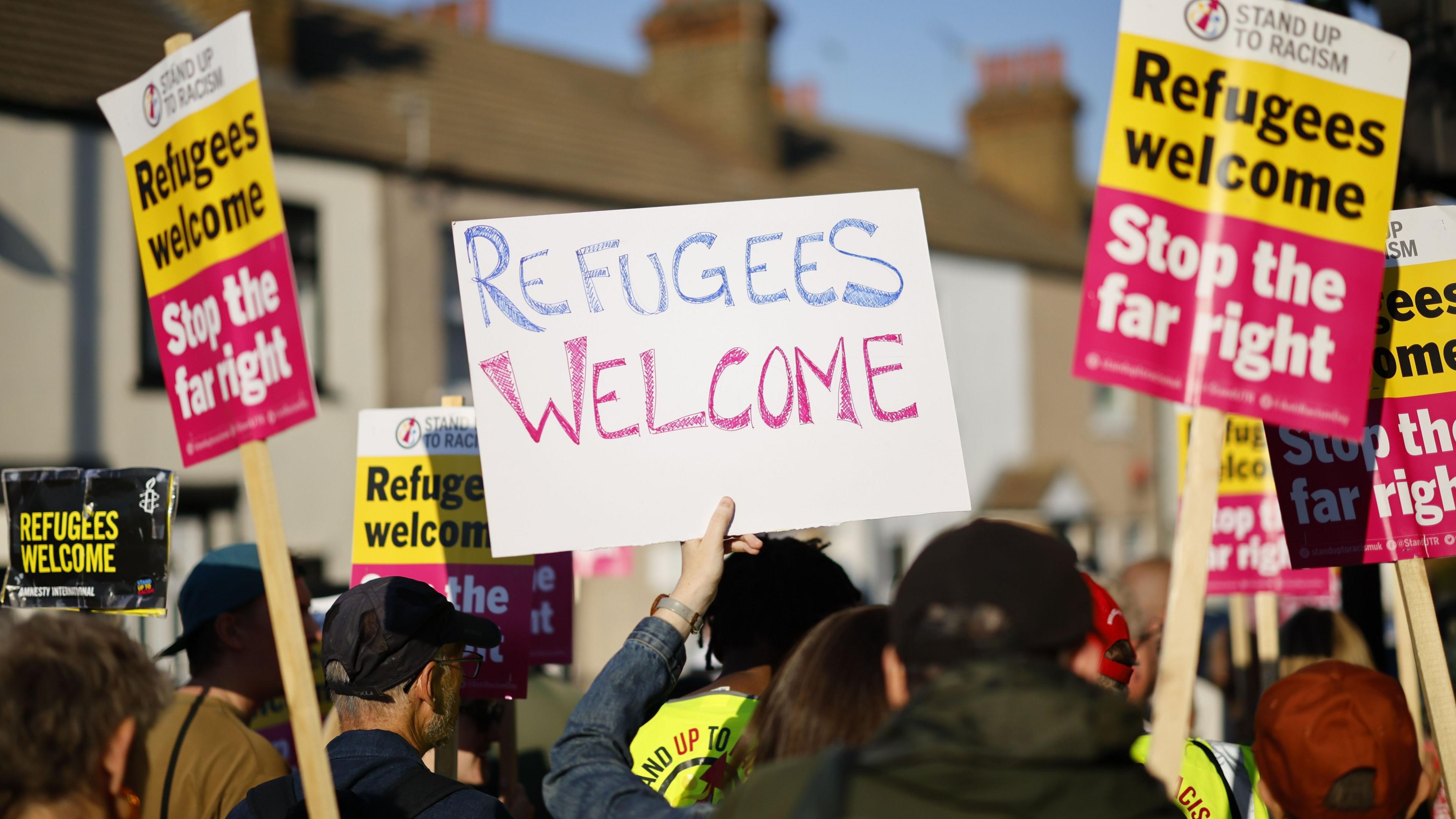
Many supporters of refugees have turned up to immigration protests around the country
Swindon previously had three hotels housing asylum seekers but currently there is just one, which is home to fewer than 100 people.
The leader of Swindon Borough Council, Jim Robbins, has released a statement asking Swindon residents not to protest outside asylum hotels.
He said: "This is not because we want to stop discussion about the issue, but simply because the majority of asylum seekers in the town are families and we don't want to have children who have already left scary and dangerous situations abroad to feel scared in their homes in Swindon too."
Mr Robbins said councillors "understand the strength of feeling on this issue".
But he advised demonstrators to "target protests at the people who can make a difference".
He said: "There is a strong argument that this isn't really a local government issue either, but we would far rather people demonstrate outside the council buildings at Euclid Street rather than outside a hotel where children are living."
- Published23 August
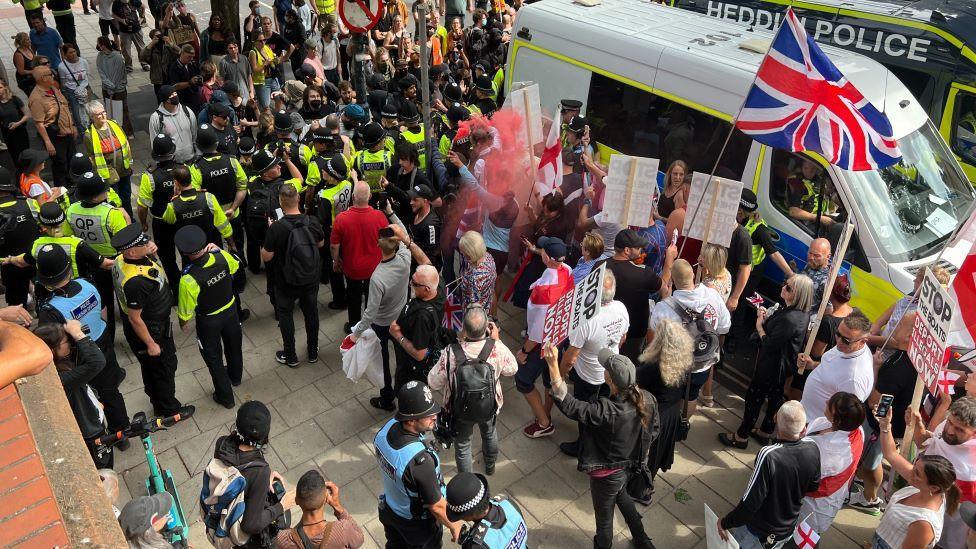
- Published25 July
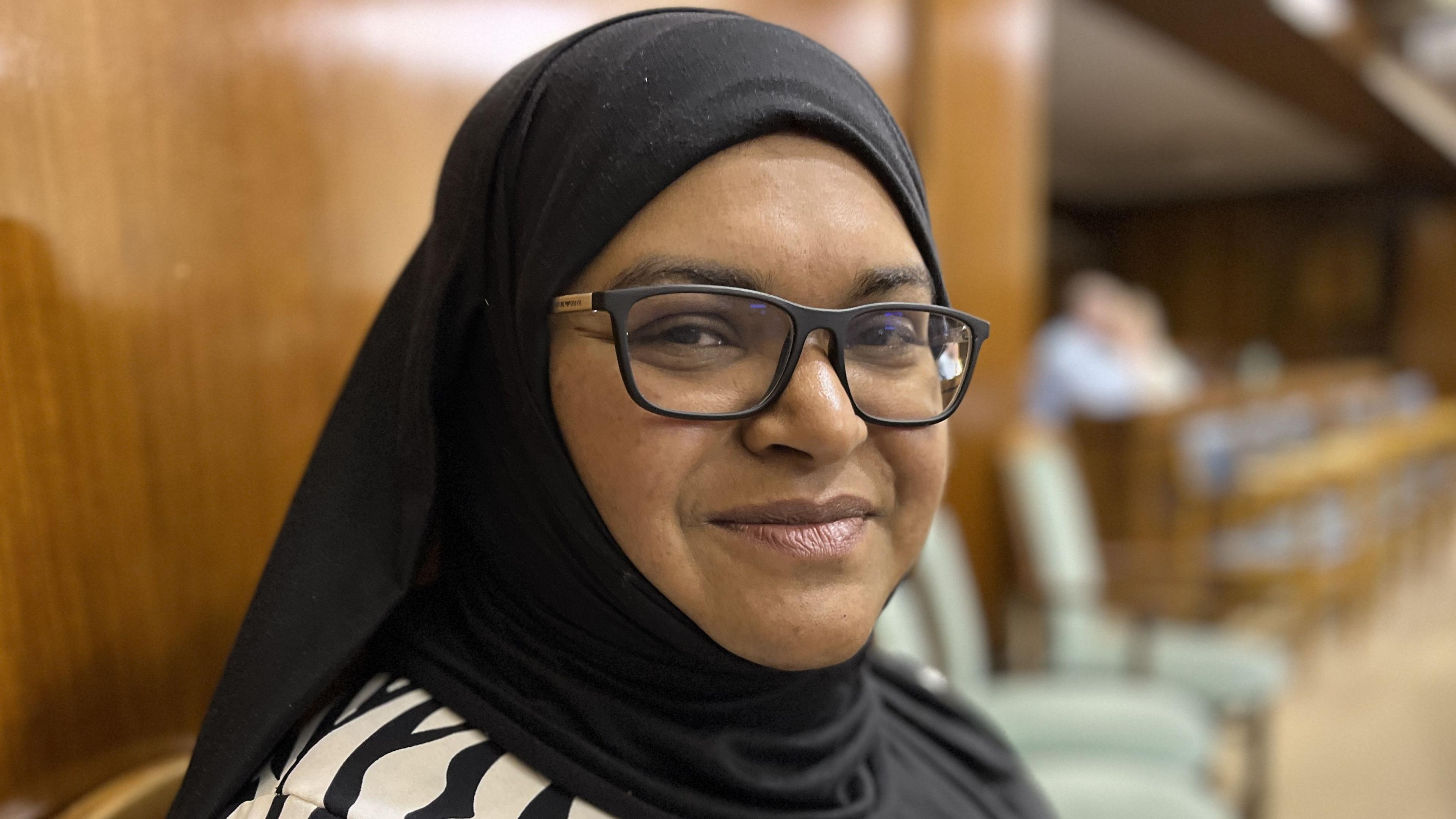
- Published25 October 2023
